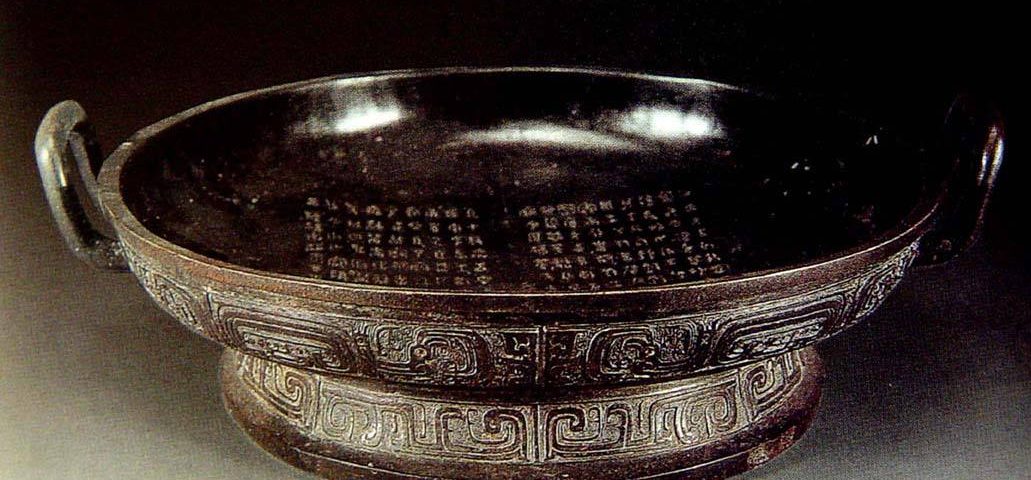Chinese poem illustration: 卫风 考槃/ Wei Wind – Father’s Plate by Anonymous
YouTube above not applicable? watch full video at Bilibili: 卫风 考槃
In Zhou dynasty, a plate is for washing hands in the event of most grand ceremonies by lords and kings. Motto of words was very likely carved on it to remind its owner, i.e. the lords and kings. The founder of Shang dynasty, Cheng Tang(成汤) carved his motto “苟日新,日日新,又日新” on his plate. The founder of Zhou dynasty, Ji Fa(武王姬发) carved his motto “与其溺于人也,宁溺于渊。溺于渊犹可游也,溺于人不可救也” on his plate. Very likely it is trendy in that time, and very likely a royal plate resembled a specific king as well.
With the above understanding, I put up a new interpretation for this simple while quite confusing poem, which was taken as the first hermit poem in the Chinese literature. Either way, this poem is the de facto first hermit poem even it might be mistakenly interpreted for two thousands years. It inspired so many great followers who learned and referenced of it, and created many great hermit poems afterwards.
卫风 考槃
佚名
考槃在涧,硕人之宽。
独寐寤言,永矢弗谖。
考槃在阿,硕人之薖。
独寐寤歌,永矢弗过。
考槃在陆,硕人之轴。
独寐寤宿,永矢弗告。
![]() This work is licensed under a Creative Commons Attribution-NonCommercial-ShareAlike 4.0 International License.
This work is licensed under a Creative Commons Attribution-NonCommercial-ShareAlike 4.0 International License.

